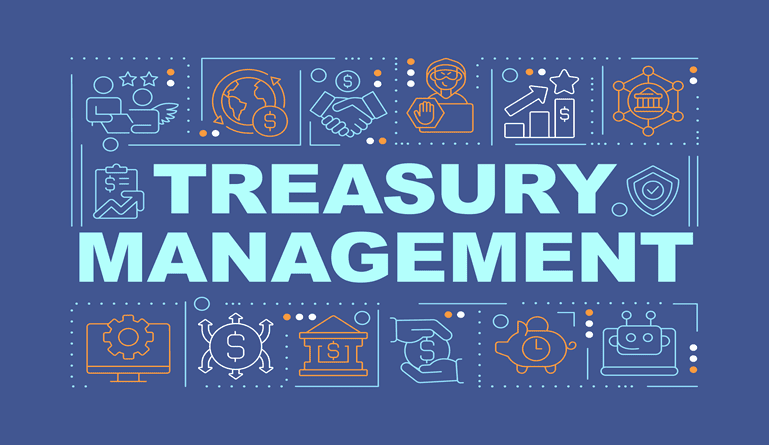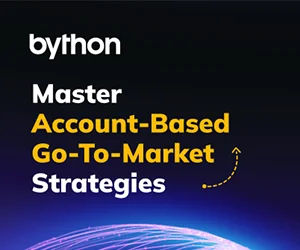Initially synonymous with cryptocurrencies like Bitcoin, blockchain technology has evolved far beyond its original application. This revolutionary technology is now poised to transform various aspects of corporate finance, offering innovative solutions to long-standing challenges in the industry. As we delve into the world of blockchain in corporate finance, we’ll explore how this technology reshapes financial processes, enhances transparency, and opens new avenues for growth and efficiency.
Blockchain is a distributed ledger technology that allows for secure, transparent, and immutable record-keeping. While its first widespread use was in powering cryptocurrencies, forward-thinking executives and financial leaders now recognize its potential to revolutionize corporate finance operations. From streamlining complex transactions to enhancing supply chain management and even transforming traditional asset structures, blockchain is a versatile tool in the corporate finance toolkit.
In this comprehensive exploration, we’ll examine the critical applications of blockchain in corporate finance, delve into real-world case studies, address the challenges and considerations of adoption, and look ahead to the future of this transformative technology. As we journey through these topics, remember that blockchain’s impact on corporate finance is not just a theoretical concept but a rapidly evolving reality that is already reshaping the financial landscape for businesses across the globe.
Key Applications
1. Smart Contracts: Streamlining Transactions and Reducing Intermediaries
One of the most significant applications of blockchain in corporate finance is the implementation of smart contracts. These self-executing contracts with the terms of the agreement directly written into code are revolutionizing how businesses handle transactions and agreements.
Smart contracts operate on an “if-then” principle. When predefined conditions are met, the contract automatically executes the corresponding action. This automation eliminates the need for intermediaries, reduces the potential for disputes, and significantly speeds up transaction processes.
In corporate finance, smart contracts are being utilized in various ways:
- Automated Payments: Smart contracts can trigger payments automatically when certain conditions are met, such as the completion of a project milestone or the delivery of goods. This not only speeds up the payment process but also reduces the administrative burden on finance departments.
- Loan Agreements: By encoding loan terms into a smart contract, repayments can be automatically processed, interest rates can be dynamically adjusted based on predefined criteria, and collateral can be automatically released or claimed as needed.
- Trade Finance: Smart contracts are streamlining trade finance by automating the release of funds upon the fulfillment of predefined conditions, such as the verification of shipping documents or the confirmation of goods receipt.
- Audit and Compliance: By recording financial transactions on a blockchain through smart contracts, companies can create an immutable audit trail, simplifying the audit process and enhancing regulatory compliance.
The implementation of smart contracts in corporate finance not only increases efficiency but also significantly reduces the risk of errors and fraud. By removing intermediaries and automating processes, companies can realize substantial cost savings and improve the speed and accuracy of their financial operations.
2. Supply Chain Management: Enhancing Transparency and Traceability
Blockchain technology is bringing unprecedented levels of transparency and traceability to supply chain finance, addressing long-standing challenges in this complex area of corporate finance.
- Enhanced Visibility: Blockchain provides a shared, immutable ledger that records every transaction and movement within the supply chain. This gives all authorized parties real-time visibility into the flow of goods, services, and payments.
- Improved Working Capital Management: With increased transparency, companies can better manage their working capital. For instance, they can more accurately predict cash flow needs based on real-time information about inventory levels and order statuses.
- Streamlined Invoice Financing: Blockchain can facilitate faster and more secure invoice financing. By providing an immutable record of transactions, it reduces the risk for financiers, potentially leading to better terms for businesses seeking financing.
- Reduced Fraud Risk: The transparency and immutability of blockchain make it much harder to falsify records or engage in double-financing, reducing the risk of fraud in supply chain finance.
- Efficient Dispute Resolution: With a shared, tamper-proof record of all transactions, resolving disputes becomes much simpler and faster, reducing costs and improving relationships between supply chain partners.
By leveraging blockchain in supply chain finance, companies can not only improve their financial operations but also build stronger, more trusted relationships with their suppliers and customers.
3. Asset Tokenization: Transforming Traditional Assets
Asset tokenization is another groundbreaking application of blockchain in corporate finance. This process involves converting rights to an asset into a digital token on a blockchain. This has far-reaching implications for how companies manage and trade assets.
- Increased Liquidity: By tokenizing assets, companies can create fractional ownership, making it easier to buy, sell, and trade portions of assets that were previously considered illiquid. This can apply to real estate, artwork, intellectual property, and more.
- Expanded Investment Opportunities: Tokenization lowers the barriers to investment, allowing a wider range of investors to participate in previously inaccessible markets. This can help companies raise capital more efficiently.
- Efficient Transfer of Ownership: Tokenized assets can be transferred quickly and securely, reducing the time and cost associated with traditional methods of transferring asset ownership.
- Enhanced Transparency: The blockchain provides a clear, immutable record of asset ownership and transaction history, increasing transparency and reducing the potential for fraud.
- 24/7 Markets: Unlike traditional markets, blockchain-based tokenized assets can be traded around the clock, potentially increasing market efficiency and liquidity.
Asset tokenization represents a paradigm shift in how companies can manage their assets, potentially unlocking significant value and creating new opportunities for financial optimization.
(Also Read: Role of Blockchain in Modern Finance)
Case Studies: Real-World Applications of Blockchain in Corporate Finance
To truly understand the impact of blockchain on corporate finance, it’s crucial to examine real-world applications. Let’s explore a few case studies that demonstrate how companies are leveraging this technology to transform their financial operations.
1. Case Study: JP Morgan’s Blockchain-Based Interbank Information Network
JP Morgan, one of the world’s largest banks, has been at the forefront of blockchain adoption in corporate finance. In 2017, the bank launched the Interbank Information Network (IIN), now known as Liink, a blockchain-based platform designed to address the challenges in cross-border payments.
- Challenge: Traditional cross-border payments are often slow, costly, and lack transparency. Payment information errors can lead to delays and additional costs.
- Solution: Liink uses blockchain technology to enable member banks to exchange information in real-time, helping to quickly resolve errors or compliance issues that could delay payments.
- Results: As of 2021, Liink has over 400 financial institutions as members. The network has significantly reduced the time it takes to resolve payment inquiries from weeks to hours. JP Morgan estimates that the technology could potentially save the banking industry hundreds of millions of dollars annually.
This case demonstrates how blockchain can be used to create more efficient inter-bank networks, streamlining processes and reducing costs in corporate finance operations.
2. Case Study: Walmart’s Blockchain-Based Supply Chain Management
Walmart, the world’s largest retailer, has implemented blockchain technology to enhance its supply chain management, with significant implications for its financial operations.
- Challenge: Walmart needed to improve food safety and traceability in its vast supply chain, which had direct financial implications in terms of inventory management and potential recall costs.
- Solution: In collaboration with IBM, Walmart developed a blockchain-based system to track the origin and journey of food products through its supply chain.
- Results: The time taken to trace the origin of food products was reduced from 7 days to 2.2 seconds. Improved inventory management led to reduced waste and better working capital utilization. Enhanced ability to pinpoint sources of contamination, potentially saving millions in broad recall costs.
This case illustrates how blockchain can improve supply chain transparency, leading to better financial management and risk mitigation in corporate finance.
3. Case Study: Santander’s Blockchain-Based Bond Issuance
Santander, a major global bank, made headlines in 2019 by issuing the first end-to-end blockchain bond.
- Challenge: Traditional bond issuance processes are complex, time-consuming, and involve multiple intermediaries, leading to higher costs and inefficiencies.
- Solution: Santander issued a $20 million bond entirely on the Ethereum blockchain, managing the entire life cycle of the bond, from issuance to maturity, on the blockchain.
- Results: The process was significantly faster than traditional methods, with the bond settled in seconds instead of days. The bank estimated potential annual savings of $20 billion in bond sales processes. The successful issuance paved the way for larger, more complex blockchain-based financial instruments.
This case demonstrates the potential of blockchain to revolutionize traditional financial instruments and processes in corporate finance.
These case studies highlight the diverse applications of blockchain in corporate finance, from improving payment networks to enhancing supply chain management and revolutionizing financial instruments. They showcase the tangible benefits that companies are already realizing through blockchain adoption, setting the stage for wider implementation across the corporate finance landscape.
Challenges and Considerations
While the potential of blockchain in corporate finance is immense, its adoption is not without challenges. Companies considering implementing blockchain technology must be aware of several key considerations:
1. Regulatory Uncertainty
The regulatory landscape for blockchain technology is still evolving. Companies must navigate complex and often unclear regulatory environments, which can vary significantly across different jurisdictions. This uncertainty can pose challenges in areas such as compliance, reporting, and cross-border transactions.
2. Integration with Legacy Systems
Many corporations have extensive legacy financial systems. Integrating blockchain technology with these existing systems can be complex, time-consuming, and costly. Companies need to carefully plan their integration strategies to ensure smooth transitions and minimal disruption to ongoing operations.
3. Scalability Issues
Some blockchain networks have faced scalability challenges, with transaction speeds slowing as the network grows. For corporate finance applications that require high-speed, high-volume transactions, this can be a significant concern.
4. Energy Consumption
Certain blockchain consensus mechanisms, particularly Proof of Work used by Bitcoin, are energy-intensive. This raises environmental concerns and potential reputational risks for companies committed to sustainability.
5. Data Privacy and Security
While blockchain offers enhanced security in many ways, it also introduces new security considerations. Companies must ensure that sensitive financial data is adequately protected, especially in permissioned blockchain networks.
6. Talent Acquisition
There is a shortage of blockchain expertise in the job market. Companies adopting this technology may face challenges in finding and retaining talent with the necessary skills to implement and manage blockchain systems.
7. Cost of Implementation
The initial cost of implementing blockchain technology can be substantial. Companies need to carefully assess the return on investment and have a clear understanding of the long-term benefits versus the short-term costs.
8. Standardization
The lack of standardization in blockchain protocols and implementations can lead to interoperability issues. This can be particularly challenging for companies working with multiple partners or across different blockchain networks.
9. Governance in Consortium Blockchains
Many corporate blockchain applications involve multiple parties. Establishing governance structures for these consortium blockchains can be complex, requiring careful negotiation of roles, responsibilities, and data access rights.
10. Change Management
Implementing blockchain often requires significant changes to existing processes and potentially to organizational structures. Effective change management is crucial to ensure buy-in from all stakeholders and smooth adoption of the new technology.
Addressing these challenges requires a strategic approach. Companies should:
- Conduct thorough risk assessments before implementing blockchain solutions.
- Stay informed about regulatory developments and engage with regulators when necessary.
- Invest in employee training and change management programs.
- Consider starting with small-scale pilot projects before full-scale implementation.
- Collaborate with industry partners to address common challenges and develop standards.
By carefully considering these challenges and taking a measured approach to adoption, companies can navigate the complexities of blockchain implementation and position themselves to reap the benefits of this transformative technology in their corporate finance operations.
Future Outlook
As we look to the future of blockchain in corporate finance, several emerging trends and potential developments are worth considering:
1. Increased Mainstream Adoption
As blockchain technology matures and more success stories emerge, we can expect to see increased adoption across various sectors of corporate finance. This wider acceptance will likely lead to more standardized practices and potentially more favorable regulatory environments.
2. Integration with Other Emerging Technologies
The convergence of blockchain with other cutting-edge technologies like artificial intelligence, Internet of Things (IoT), and big data analytics promises to create even more powerful tools for corporate finance. For instance, AI could be used to optimize smart contract terms, while IoT devices could provide real-time data inputs for blockchain-based supply chain finance systems.
3. Central Bank Digital Currencies (CBDCs)
Many central banks are exploring or developing their own digital currencies. The introduction of CBDCs could have significant implications for corporate finance, potentially streamlining cross-border transactions and offering new tools for liquidity management.
4. Decentralized Finance (DeFi) in Corporate Treasury
While DeFi has primarily been a phenomenon in the crypto world, its principles of open, permissionless financial systems could start to influence corporate finance. We might see the emergence of DeFi-inspired tools for corporate treasury management, offering new ways to manage liquidity and earn yields on idle cash.
5. Enhanced Regulatory Frameworks
As blockchain becomes more prevalent in corporate finance, we can expect to see more comprehensive and clear regulatory frameworks emerge. This could provide greater certainty for businesses and potentially accelerate adoption.
6. Blockchain-as-a-Service (BaaS)
More companies are likely to offer blockchain solutions as a service, making it easier for businesses to adopt the technology without having to build and maintain their own blockchain infrastructure.
7. Improved Interoperability
Future developments are likely to focus on improving interoperability between different blockchain networks, making it easier for companies to transact and share data across various platforms.
8. Sustainable Blockchain Solutions
With growing focus on environmental sustainability, we’re likely to see increased adoption of energy-efficient consensus mechanisms and carbon-neutral blockchain solutions in corporate finance applications.
9. Tokenization of More Complex Assets
Beyond simple assets, we might see the tokenization of more complex financial instruments, potentially revolutionizing areas like derivatives trading and structured finance.
10. Blockchain in Auditing and Compliance
The role of blockchain in creating tamper-proof audit trails is likely to expand, potentially transforming the auditing process and enhancing regulatory compliance in corporate finance.
As these trends unfold, corporate finance leaders will need to stay informed and agile. The companies that can effectively leverage blockchain technology while navigating its challenges are likely to gain significant competitive advantages in terms of efficiency, transparency, and innovation in their financial operations.
Final Thoughts
Blockchain technology is no longer just about cryptocurrencies; it has emerged as a powerful tool capable of transforming numerous aspects of corporate finance. From streamlining transactions through smart contracts to enhancing supply chain finance transparency, and from revolutionizing asset management through tokenization to creating new paradigms for financial record-keeping, blockchain is reshaping the financial operations of businesses across the globe.
The case studies we’ve examined demonstrate that this is not a theoretical future, but a present reality. Major corporations and financial institutions are already reaping substantial benefits from their blockchain implementations, setting new standards for efficiency, transparency, and security in corporate finance.
However, the path to blockchain adoption is not without its challenges. Regulatory uncertainties, integration complexities, and the need for specialized expertise are just a few of the hurdles that companies must navigate. Yet, for those who can successfully overcome these challenges, the potential rewards are substantial.
Looking ahead, the future of blockchain in corporate finance appears bright. As the technology matures and converges with other cutting-edge innovations, we can expect to see even more transformative applications emerge. From the potential integration of decentralized finance principles into corporate treasury management to the rise of central bank digital currencies, the landscape of corporate finance is set for continued evolution.
For executives and financial leaders, the message is clear: blockchain is no longer a technology that can be ignored or relegated to the IT department. It has become a critical tool for financial innovation and competitive advantage. Those who take the time to understand its potential, carefully consider its applications, and thoughtfully implement blockchain solutions are likely to find themselves at the forefront of the next era of corporate finance.
As we move forward, it will be crucial for corporate leaders to stay informed about blockchain developments, to cultivate the necessary expertise within their organizations, and to be prepared to adapt their financial strategies to leverage this powerful technology. The blockchain revolution in corporate finance is underway, and its full potential is yet to be realized. The question for executives is no longer whether to engage with blockchain, but how to best harness its power to drive their companies’ financial success in the years to come.








